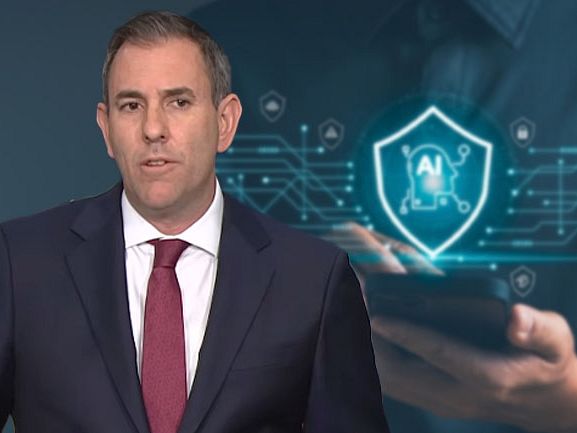Labor’s plans to loosen copyright protections for artificial intelligence threaten the livelihoods of Australian artists and media workers, writes Rosie Williams.
THE GOVERNMENT is caving in to artificial intelligence (AI) billionaires on removing copyright protections.
The first notion I had that the music industry is about to be hit by a tidal wave with the potential to destroy livelihoods was when I logged into my music distributor dashboard after a long absence and found a new option labeled ‘Fair Trade AI’:
Fair Trade AI Program
Allow LANDR to utilise your released tracks for training its AI model and earn additional revenue based on your contribution to LANDR’s upcoming assistive tools, created to support artists’ creativity and workflow.
When I first read this, I had no real idea what AI music was but it was obvious to me I needed to get up to speed. Within weeks, I would watch class action lawsuits against AI companies unfold in the United States while Treasurer Jim Chalmers salivated over investments promised by tech bros demanding he wind back copyright law to sanction the wholesale plunder of our music, art and media.
Within days, I would hear that U.S. President Donald Trump fired the head of the Copyright Office of the United States one day after she handed down her report into copyright and AI.
This staggering level of authoritarianism does not augur well for Australians with skin in the game. At the Treasurer’s behest, Australia’s Productivity Commission has been tasked to ‘identify prospective areas for (law) reform’ and measure long term economic impacts and benefits to Australian households of such reforms.
The Productivity Commission just released its interim report with Chapter 1 labelled: ‘Enable AI’s productivity potential’.
The most telling point in the summary states:
‘An example of where governments can act to bring regulatory clarity and certainty is in copyright settings. The PC is seeking feedback about whether reforms are needed to better facilitate the use of copyrighted materials, in the context of training AI models.’
One of the problems of concepts like “productivity” is that they have no way to express, measure or value the human connections that are the point of art, music and great writing. This is why we have lost so much of social value in recent decades as we watch the death-throes of mainstream and independent media.
The irony is that artificial intelligence is believed to hold the key to increases in “productivity” but this productivity is directly extracted from the wholesale theft of every piece of cultural output that has and will continue to be mined by massive tech companies, unless regulators decide to step in.
Jim Chalmers and the Productivity Commission are making clear that instead of defending the rights and livelihood of Australia’s creators, they intend to give a pass to AI companies to plunder our work to provide themselves with the only value their otherwise useless products actually have.
In recent months, music streaming services have allowed real musicians to be displaced by fake AI “bands” with fake bios and music that clones existing musicians.
In an unusual turn, both Greens and Liberals leaders have spoken out against Labor’s plan to rule in favour of big tech. The strange bedfellows, no doubt due to the fact that both big music labels and mainstream media are at a similar disadvantage to independent musicians and publishers in these AI wars.
In the context of large-scale music theft, my music distributor, Landr, is taking a relatively ethical approach in making participation in AI training an opt-in process (for its own AI services) and also requiring musicians releasing with them to confirm with each release whether or not AI has been used at any stage in the process of making the track.
Participants are promised 20 per cent of the revenue generated from the program. As with music distribution in general, whether the promised royalties amount to anything more than a drop in the ocean is another matter. Realistically, my music, along with every other artist has probably already been stolen for use in AI software.
That my own government intends to be complicit in this theft is extremely disappointing. Industry leaders have spoken loudly and clearly against the direction being taken by Jim Chalmers and the Productivity Commission.
You can add your voice to the call for regulation through an AI Act at the Media, Entertainment and Arts Alliance website today. You can also make submissions to the final report of the Productivity Commission until Monday 15 September. You can read more about attitudes and use of artificial intelligence in the music industry in APRA AMCO’s report, AI and Music.
If you have content to protect, you can also follow the development of “poison pilling”, products which are set to disrupt AI software by making art and audio tracks resistant to AI scrapers.
Rosie Williams is a citizen journalist who runs privacy workshops at rosiewilliams.com.au. You can follow Rosie on Twitter @Info_Aus.
Support independent journalism Subscribe to IA.


Related Articles
Disclaimer: This post is sourced from an external website via RSS feed. We do not claim ownership of the content and are not responsible for its accuracy or views. All rights belong to the original author or publisher. We are simply sharing it for informational purposes.
